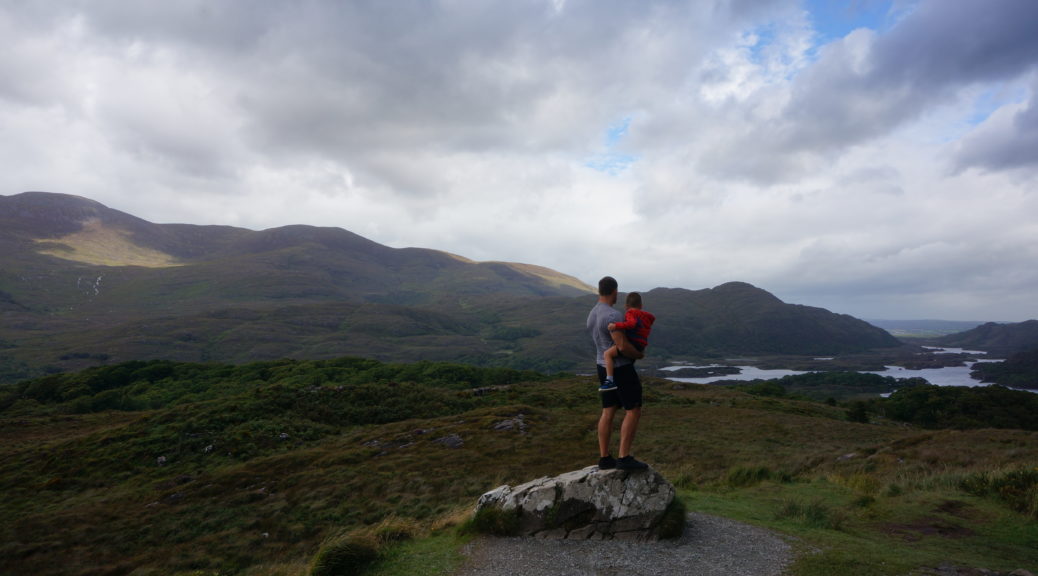Category Archives: learning
Priming the Pump
Before we had our son a few years ago I had a simple system for getting work done. Each night I would put one item on my todo list for the next day, the one task I knew would provide the most leverage over everything else.
The next day I would wake up, get dressed, and immediately start work on that single task. I would be fully focused – in “flow”, as it’s commonly known – and the work would fly by.
Once I ran out of steam, I would take a break and then do whatever I wanted to do with the rest of my day, including tackling other, less important items on my list.
Now, of course, my priorities have changed. I wake up in the morning with my son, we get dressed, have breakfast, and goof off a bit before I drive him to school. After dropping him off, I return home to tackle my one task.
I quickly found, however, that once I was already a few hours into my day it was difficult to hit that one task full force. It was a struggle, I was distracted, and when the work did finally begin, it was difficult to get in “flow”.
Months went by, and I slowly developed a theory as to why this was happening.
After a few hours of the morning had passed, my brain had already been wandering around a bit, tugging on a few different problems (“How the hell do you get dried bananas unstuck from Legos?”, “Why do I have to ask thirty times before he puts his shoes on?”, etc), and even doing a bit of daydreaming in the car.
By the time I sat down to get my one task for the day done, my mind was already distracted and required quite a bit of settling down before I could dig in. And during that period I was likely to get further distracted by email, social media, a cool programming problem, working on my crappy-but-improving handstand, or a host of other fun but low-priority business.
The longer I delayed in starting my task, the longer it took and the weaker my focus was when I began. The result was an enormous amount of time wasted.
With a theory in hand, I decided to start experimenting with ways to get back into “flow” after a morning full of activity.
It’s been several months, and now I’m able to drive home after dropping off my son, walk in the house, and jump into work, fully focused, right away.
The difference? Priming.
The ride home from my son’s school takes about 15 minutes. For that 15 minutes I now focus solely on the task on which I’ll be working. No music, no podcasts, no problem-solving not related to the task, no daydreaming, etc. I turn the task over in my mind, hitting it from every direction , looking for pitfalls, shortcuts, and alternative solutions.
By the time I get home I can hardly wait to dig in. It’s been exciting to discover the difference a few minutes of “pre-task mental focus” – priming – can make.
The next step is to start cutting down the “priming” time from 15 minutes, to 10, to 5, etc until I see just how little time I can spend priming for the task and still be able to jump in, fully engaged and ready to rock. Can I get to a place where I can sit front of my chosen task for 10 seconds, then attack it with focus? I don’t know, but it’s worth the time and practice to find out.
There are undoubtedly many people out there that can don’t need priming, and can just engage and be in “flow”. I’m not one of them, and it’s going to require a good deal of work to get there.
The journey continues.
Do You Know Jack?
Yes, there are a few things that you know for sure.
Most things. though, you don’t know jack shit about, even if you think you do. It’s all too human to pretend to know something even when you don’t.
What would happen if you decided that you didn’t know, even if you thought you did?
Not only that, but what would happen if you happily announced your lack of knowledge?
Might a wall come down?
Might you learn something new?
Might you become something new?
Go Pareto On Your Ass
Got 10 minutes? Good.
Pick one:
A) Of all the things you do every day, what are the 20% that give you the most pleasure?
B) Of all the people with whom you spend time, who are the 20% that are most rewarding to you?
C) Of all the things you do every day, what are the 20% that frustrate or stress you the most?
D) Of all the people with whom you spend time, who are the 20% that drag you down?
Again, pick just one. Then spend some time creating a list of either all the things you do daily or all the people with whom you spend time. Finally, go over your list again and circle your 20%.
If you chose (A) or (B), what can you do to get more of the things or people you circled? If you chose (C) or (D), what can you do to cut down or eliminate those stressors you circled?
Ditch the Highlighter
If you’re the type that reads with a highlighter, using it every few minutes to mark something striking or brilliant before plowing on only to forget it later, try this instead:
As you’re reading, if you come across something that seems significant, close the book and put it down. Go for a walk and turn the idea over inside your head. Digest it. Reframe it. Absorb it.
Once you’ve explored it thoroughly, then pick the book back up and continue.
Highlight all you want, but slow down and reflect on those gems before moving on.
Going Deep
What is a “Deep Dive”? You’ve probably heard the term before, but what exactly does it mean?
It means doing something that very few people can. It means spending (depending on the complexity of the subject) hours, weeks, months, or even years exploring something very specific.
And we’re not talking about reading. Reading is useful but it can easily become a crutch. In order to truly learn you have to execute.
The Deep Dive is difficult. Most people start digging into a subject, hit some rocks right away, and quit. Do this for a handful of subjects and you’ll be like most people: a source of “mile wide, inch deep” knowledge.
The opposite, “inch wide, mile deep” knowledge, is well worth the work. It’s rare and extremely valuable. In many cases you can contribute something entirely new to a field, which is incredibly rewarding. And the process changes you, endowing you with patience, discipline, analytical skills, and confidence that most people lack.
It’s tough to dig deeper. And in many cases, it seems like an inch deep truly is the bottom.
But it isn’t. If you sit in front of a seemingly impenetrable wall long enough, fissures will eventually begin to appear. After hours, days, or weeks of probing, you will find a way through where others could not.
So the next time you tackle a subject or a problem, work on it until you think you can go no further. Then continue to hammer away at it, breaking down its resistance until it gives up its secrets.
Don’t stop until it does.
Not As Bad As It Sounds
We’ve all been trained to expect scarcity. It’s built into our lives. Water will become scarce. Food is scarce. Oil is scarce.
“Be afraid. Everything is running out.”
But what if that’s not true? What if technology is creating a world in which our most precious resources are going to become, for all reasonable purposes, unlimited?
Water purifying technology is becoming more and more affordable and easily deployable. Food – be it meats, grains, vegetables, etc – can now be produced in so many new and sustainable ways that it’s dizzying. Energy is getting cheaper every day, and solar technology in particular is improving at an ever faster rate.
This doesn’t mean that we can now throw a party and forget about conservation. But you can tune out the chorus of “Everything is running out!” repeated over and over by those who profit from your fear.
Things are getting better. We can solve this.



